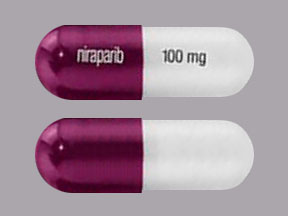Zejula Disease Interactions
There are 5 disease interactions with Zejula (niraparib).
Niraparib (applies to Zejula) cardiovascular disorders
Moderate Potential Hazard, Moderate plausibility. Applicable conditions: Cardiovascular Disease, Arrhythmias
Niraparib has the potential to cause effects on pulse rate and blood pressure. Hypertension and hypertensive crisis have been reported in patients treated with niraparib. It is recommended to monitor blood pressure and heart rate monthly for the first year and periodically thereafter during treatment with niraparib. Closely monitor patients with cardiovascular disorders, especially coronary insufficiency, cardiac arrhythmias, and hypertension. Medically manage hypertension with antihypertensive medications and adjust the dose of niraparib as necessary.
References
- (2017) "Product Information. Zejula (niraparib)." Tesaro Inc.
Niraparib (applies to Zejula) liver dysfunction
Moderate Potential Hazard, Moderate plausibility. Applicable conditions: Liver Disease
No dose adjustment is needed in patients with mild hepatic impairment according to the National Cancer Institute - Organ Dysfunction Working Group (NCI-ODWG) criteria. Caution is recommended in patients with moderate to severe hepatic impairment as the safety of niraparib has not been established in these patients.
References
- (2017) "Product Information. Zejula (niraparib)." Tesaro Inc.
Niraparib (applies to Zejula) MDS/AML
Moderate Potential Hazard, Moderate plausibility. Applicable conditions: Myelodysplastic Disease, Leukemia
Myelodysplastic Syndrome/Acute Myeloid Leukemia (MDS/AML), including cases with fatal outcome, have been reported with the use of niraparib. It is recommended to use caution when using this agent in patients with MDS/AML, its use must be weighed against the risk. Discontinue the use of niraparib in patients who develop MDS/AML.
References
- (2017) "Product Information. Zejula (niraparib)." Tesaro Inc.
Niraparib (applies to Zejula) pancytopenia
Moderate Potential Hazard, Moderate plausibility.
Hematologic adverse reactions (thrombocytopenia, anemia and neutropenia) have been reported in patients treated with niraparib. It is recommended to monitor complete blood counts weekly for the first month, monthly for the next eleven months of treatment, and periodically after this time. Do not start niraparib until patients have recovered from hematological toxicity caused by previous chemotherapy (less than equal to Grade 1). If hematological toxicities do not resolve within 28 days following interruption, discontinue niraparib, and refer the patient to a hematologist for further investigations, including bone marrow analysis and blood sample for cytogenetics.
References
- (2017) "Product Information. Zejula (niraparib)." Tesaro Inc.
Niraparib (applies to Zejula) renal impairment
Moderate Potential Hazard, Moderate plausibility. Applicable conditions: Renal Dysfunction
No dose adjustment is necessary for patients with mild to moderate renal impairment. Caution is recommended in patients with severe renal impairment or end stage renal disease undergoing hemodialysis as the safety of niraparib has not been established in these patients.
References
- (2017) "Product Information. Zejula (niraparib)." Tesaro Inc.
Zejula drug interactions
There are 584 drug interactions with Zejula (niraparib).
Zejula alcohol/food interactions
There is 1 alcohol/food interaction with Zejula (niraparib).
More about Zejula (niraparib)
- Zejula consumer information
- Check interactions
- Compare alternatives
- Pricing & coupons
- Reviews (57)
- Drug images
- Side effects
- Dosage information
- During pregnancy
- FDA approval history
- Drug class: PARP inhibitors
- Breastfeeding
- En español
Related treatment guides
Drug Interaction Classification
| Highly clinically significant. Avoid combinations; the risk of the interaction outweighs the benefit. | |
| Moderately clinically significant. Usually avoid combinations; use it only under special circumstances. | |
| Minimally clinically significant. Minimize risk; assess risk and consider an alternative drug, take steps to circumvent the interaction risk and/or institute a monitoring plan. | |
| No interaction information available. |
Further information
Always consult your healthcare provider to ensure the information displayed on this page applies to your personal circumstances.


